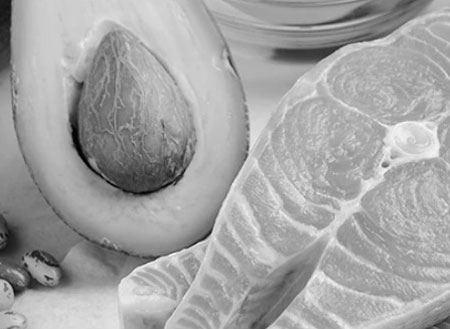
Inflammation in the body can wreak havoc on someone trying to maintain a healthy and active lifestyle. Sometimes, inflammation is nothing we can prevent, such as immediately after a traumatic injury. However, chronic inflammation can sometimes be subdued by eating a diet specifically designed to minimize the body’s inflammatory response. The Arthritis Foundation has published some recommendations specific to how different foods can aid and abet the body’s natural inflammation-fighting regimen, so get out your best pots and pans and keep reading to find out what foods you can prepare to keep those swollen knees at bay!
Omega-3 fatty acids are inflammation-fighting superheroes that decrease c-reactive protein and interleukin-6 to help alleviate inflammation. These superheroes are commonly found in fish. To maximize benefit, the fish should be baked or broiled, never fried, prior to consumption.
Remember when you were a kid and your mom told you to eat your fruits and veggies? She was probably trying to be proactive in reducing your body’s overall inflammatory response. Those fruits and veggies she forced you to eat despite their horrid taste contain all of the antioxidants your body needs to fight that swelling and stiffness. Specifically, you want to lean towards the dark, leafy greens and brightly colored fruits such as berries.
For those of you lucky enough to not have the common nut allergy, you can incorporate handfuls of nuts or seeds into your weekly diet. Such foods contain monounsaturated fat, protein, and fiber, which is a magical combination for depleting the inflammation in your body.
Beans as a source of protein can reduce inflammation because they contain a cocktail of antioxidants as well as fiber, protein, folic acid, magnesium, iron, zinc, and potassium. High fiber foods in general can help prevent inflammation by not only lowering the c-reactive protein level, but also filling you up so you refrain from binging on processed, albeit delicious, foods that increase inflammation due to the saturated fats they contain. The kind of fat that can actually reduce inflammation is called monounsaturated fat and is found in olive oil.
These dietary recommendations are particularly useful for patients with comorbidities that prevent them from being able to take anti-inflammatory medication. Some people simply prefer not to have to take one more pill if they can get the same effect from food. Even for people who use medication, this diet can be beneficial and further enhance the effects of nsaids. Traditional treatments for inflammation can still be utilized such as cortisone injections, ice, elevation, and compression. Diet is just one more tool in your arsenal for fighting that nagging inflammation!
For additional information regarding dietary accommodations for people who deal with inflammatory conditions, you can visit The Arthritis Foundation website: https://www.arthritis.org/living-with-arthritis/arthritis-diet/antiinflammatory/anti-inflammatory-diet.php
This blog is written by one of our very own-Morgan. She is a certified athletic trainer working as a medical assistant with our providers each and every day in our clinic. She obtained a bachelor's degree in athletic training from Carroll University in Waukesha and a master's degree in Kinesiology from Michigan State University. She is excited to bring you updates and information about the happenings at OAW.

